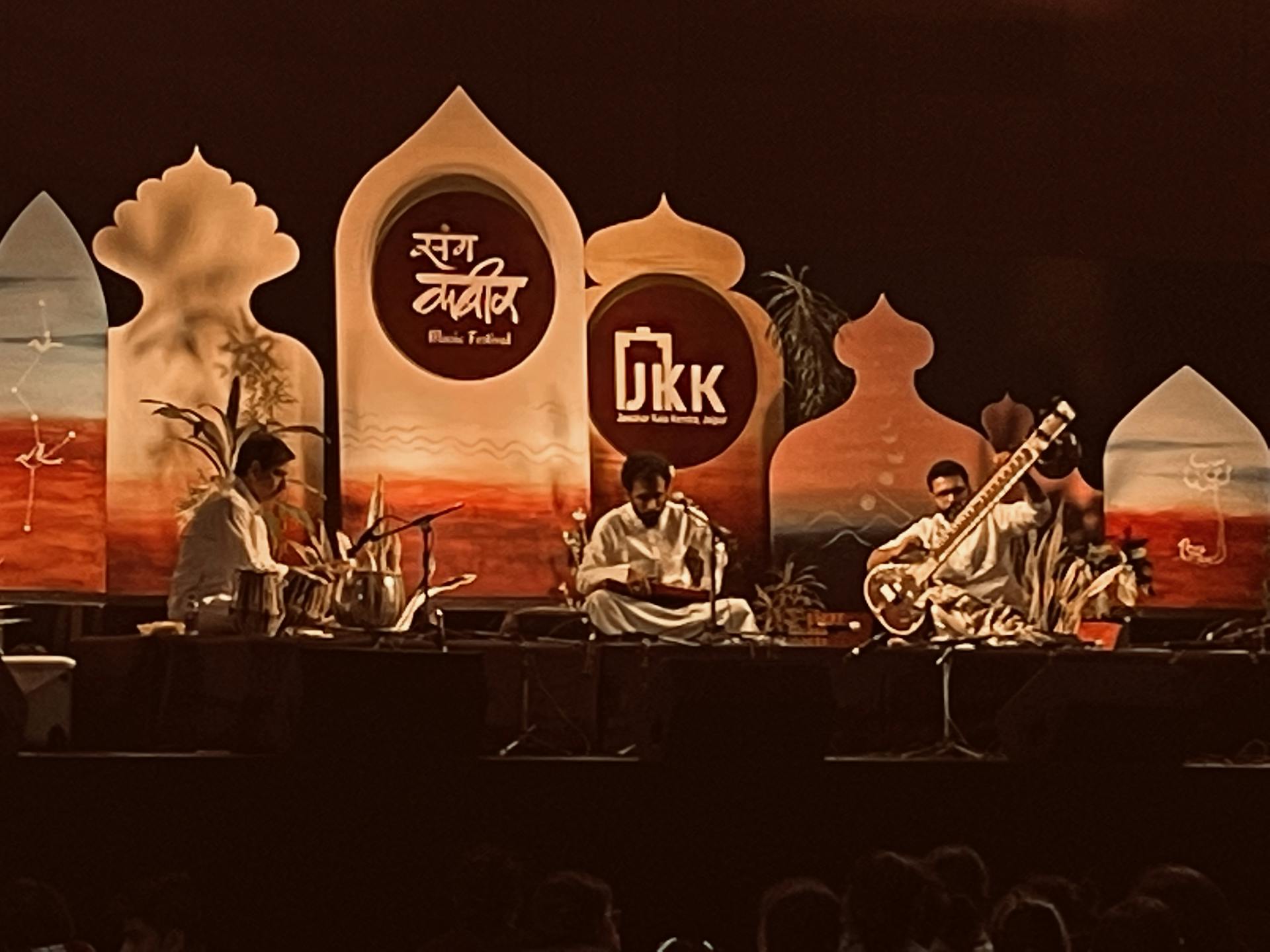
Kabir — Freedom from Fear
Kabir was a great poet and mystic from the 15th century in North India. He spoke out against the rigidity that Hinduism and Islam had at the time. His teachings were in the form of poems and songs, and they influenced the Bhakti and Sufi movements. What we know of him is primarily from his ideas remixed by thousands of people over centuries, so he doesn’t feel like a person as much as a collective philosophy.
I am in Rajasthan attending a Kabir music festival, where talented folk musicians are performing Kabir songs. The heart of Kabir’s music is a complete freedom from fear. Our biggest fear is death, so he talks a lot about death. His approach to death is joyous; when you stop denying death and face it squarely, you are free. You can sing!
Kabir was illiterate but thousands of poems are attributed to him. His poems aren’t literature as much as they are oral, performative, living utterances. His language changes – his Hindi sounds Gujarati when he is in Gujarat, Rajasthani when he is in Rajasthan.
Kabir’s oral tradition is chaotic. Words of his songs change, their order changes. The same singer sings it differently a week later. The text is alive and improvised. In many ways, Kabir is India. Fluid, spontaneous, improvisational, and alive.
Many elements of the Indian tradition are Kabir-like. For example, Indian mathematics places a high emphasis on improvization instead of rigorous proofs, which the Greeks valued. Ancient Indian mathematics has prescient set of take-it-or-leave-it style truths on how the world works. Ramanujan relied on intuition and hated proofs. GH Hardy, who mentored Ramanujan at Oxford, said of Ramanujan’s results on continued fractions: “They must be true. Because if they were not true, no one would have the imagination to invent them.” Kabir’s truths are similar to those of Indian mathematicians: bold, improvisational, written in a couple of verses, and not overly justified.
India has a cultural aversion to writing. Most knowledge in India was passed on through generations orally, so there is a high emphasis on meter and rhyme, which helps with memory. The Vedas were preserved orally for over a thousand years before ever being written down. Kabir’s poems are no different; for them to stay alive, they needed to rhyme and have a metrical style.
There’s something about this land that makes people actively seek the spiritual and talk about it. Four major religions originated in India: Hinduism, Sikhism, Jainism, Buddhism. Some of the oldest churches in the world are in India; the earliest evidence of Christianity in India was 52 AD in Kerala. Islam first came to India during the lifetime of the Prophet Muhammed. India has produced a large number of influential spiritual leaders and mystics: Adi Shankara, Kabir, Tulsidas, Aurobindo, Osho, and the list goes on.
Kabir’s music has harmony between the poetry, tune, and rhythm. Even if you don’t understand the words, you feel freed.
The Kabir Yatra happens once a year. People travel through the villages of Rajasthan along with dozens of artists. It is a musical journey without expectations or plans, like our ancestors did during Kabir’s time. You don’t know where you are going to eat or drink. You know that you will experience the music with your body.
Kabir saw beauty. To continue to stay alive, it is important to see beauty. Darwin’s thoughts on his waning ability to appreciate art, music, and poetry during his old age will always stay on my mind.
My mind seems to have become a kind of machine for grinding general laws out of large collections of facts, but why this should have caused the atrophy of that part of the brain alone, on which the higher tastes depend, I cannot conceive. A man with a mind more highly organised or better constituted than mine, would not, I suppose, have thus suffered; and if I had to live my life again, I would have made a rule to read some poetry and listen to some music at least once every week; for perhaps the parts of my brain now atrophied would thus have been kept active through use. The loss of these tastes is a loss of happiness, and may possibly be injurious to the intellect, and more probably to the moral character, by enfeebling the emotional part of our nature.
Charles Darwin
Kabir’s music is about finding truth. Face your fears squarely, overcome them, become free, see beauty, and sing out loud.
Mat Kar Maya Ko Ahankar
Mat Kar Kaya Ko Abhiman Kaya Gar Se Kachi
Ho Kaya Gar Se Kachi Re Jaise Os Ra Moti
Jhonka Pawan Ka Lag Jaye, Jhapaka Pawan Ka Lag Jaye
Kaya Dhool Ho Jasi, Kaya Teri Dhool Ho Jasi
It’s as fragile as clay
Don’t be deluded by illusions; don’t take pride in the body
A blast of wind, just a little gust
And the body will turn to dust